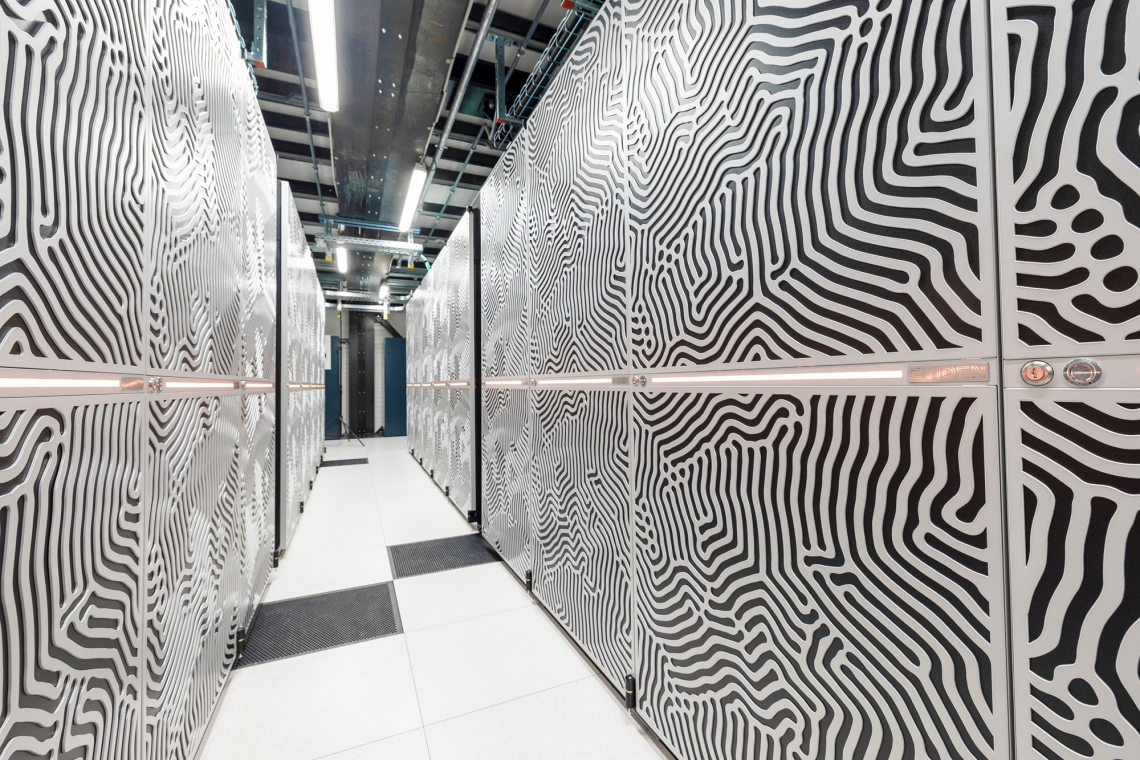At the heart of the new facility is the Jupiter supercomputer at Forschungszentrum Jülich, one of the most powerful and environmentally friendly computers in the world. The German research center thus plays a key role in the development of a European AI infrastructure.
The aim is to reduce dependence on the USA and China. The supercomputer developed in Jülich is still in the test phase and is scheduled to officially go into operation at the end of 2025. Jupiter currently ranks fourth on the TOP500 list, the internationally recognized ranking of the world's most powerful supercomputers. It is also the most energy-efficient system among the top five. Its computing power is equivalent to around five million notebooks. Equipped with 24,000 NVIDIA GH200 Grace Hopper superchips, its main purpose is to process huge amounts of data and train complex AI models - under European law.
The computing power is equivalent to around five million notebooks.
The Jupiter AI Factory is part of a European network of 13 AI factories, five of which are being expanded into giga-factories. Jülich is considered a promising candidate. The project is being financed over six years with a total of €500 million from the federal government, the state of North Rhine-Westphalia and the EU.
Link: https://t1p.de/p1hce
Experts warn that Jupiter can only become a magnet for companies, start-ups and science if it remains open, affordable and practical. Concrete applications are rare so far, but there is initial interest from research and industry.



